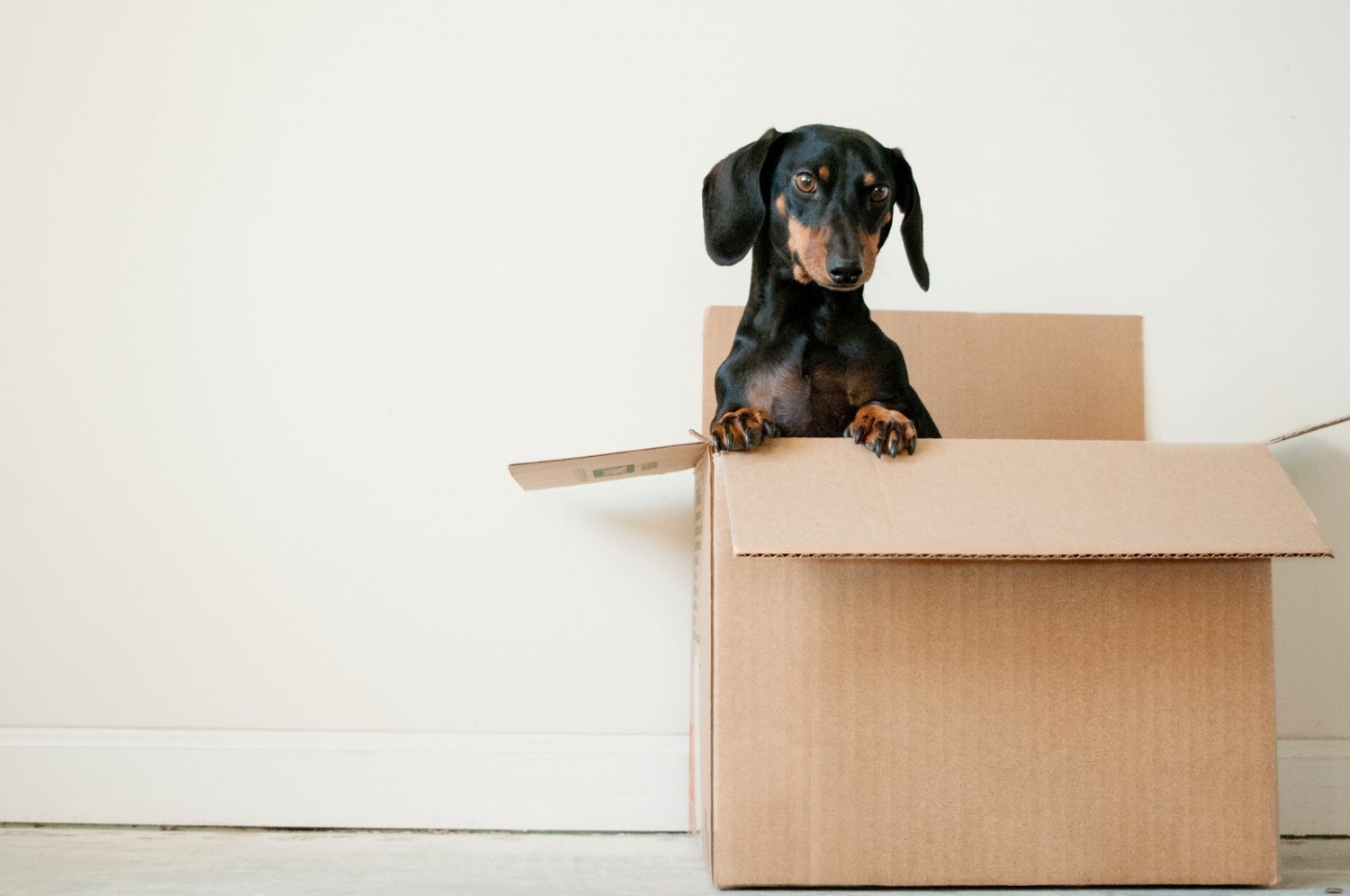Best Ways to Move with Pets Without Stressing Them Out

This tip can help make the transition into a new home easier for you and your pets. I would always recommend keeping a bag of essentials separate from the other items being moved. You can put things into an overnight bag, a backpack, or anything that looks different from the boxes that you are moving. This helps you keep the items that you will need for the first few nights easily distinguishable from your other items.
Make sure that you have one bag for yourself and another bag that holds what pet items you will need for the first few nights. Your bag should have food, clothes, hygiene products, toilet paper, trash bags for the unpacking process, and anything else that you might need during the first few nights. The pet bag should have food, grooming tools, leashes, litter, and anything else that your pets will need immediately. Having a bag of essentials lets you take your time during the unpacking process. You know that your needs and your pets' needs are taken care of. This lets you focus on unpacking the non-essentials over time.
Consult Your Vet
Your veterinarian can give you copies of vet records and vaccination certificates. Having these copies will make it easier for you to get started with a new veterinarian. You can also ask your current veterinarian to recommend some veterinarians in the area that you are moving to. It is good to research veterinarian clinics on your own as well. However, your vet can give you expert recommendations that you can check out further during your own research.
You should also try to get your pets health needs taken care of BEFORE the move. Remember that it may take time to get established in your new home. You may not focus on vet visits immediately because you have other priorities to take care of first. Before the move is a great time to get your pets updated on their vaccinations so that you don't have to worry about it after the move.
For pets that are traveling by plane, you will also need a health certificate from your vet. The certificate is only valid for a certain time period, such as one month before your trip. Consult the airline in order to see when you need to get the certificate. Then you can take this information to your vet and they can give you a health certificate that you are sure will work for your chosen airline. You may also need to have your pet vaccinated for certain diseases before they are allowed to board the plane.
Consider Using Pet Sedatives
If you think that your pet may be nervous during the move, you can also ask your vet for pet sedatives. The sedatives that veterinarians prescribe usually won't be strong enough to put a pet to sleep. The sedatives will just help keep your pets calm and relaxed during the move. It is important to discuss the proper dosages with your vet. Your vet will tell you how to properly dose your pet, but make sure that you actually understand what they are saying. If you have any questions, voice them during your vet visit. Don't realize that you don't know how much to give your pet on the day of the move! You may not be able to get the answers from a vet clinic in time.
Keep Your Pets Away from the Action
You want the move to be as stress-free as possible for your pets. You can help reduce their stress levels by keeping your pets in another room or on another floor while you move. Make sure that your pets have what they need, such as food and water. If possible, try to let dogs out or walk them on their normal schedule in order to further let them know that everything is okay. Check on your pets from time to time to make sure that they are doing okay.
Hire a Moving Company
This tip may sound strange but a moving company can make it much easier on moving day when you are moving with a pet. You should keep your pets away from the moving action in order to keep their stress levels low. Hiring a moving company, like San Francisco Movers, means that you will have extra help on moving day. The stress isn't entirely on your shoulders and you can check on your pets more often. You can also take your pets out on a walk when the move is underway. This keeps their normal routine going and lets them know that everything is okay.
Make Sure That Your New Place Allows Pets
For people who are moving into a new house, this shouldn't be an issue. However, apartments have strict rules on whether or not they accept pets. You may have to pay a pet deposit so make sure to discuss this with your new landlord before the move. Along with a deposit, you may also have to pay a monthly charge for having a pet that is based on how many pets you own. Discuss any pet related charges with your new landlord. Be sure to add the pet related expenses to your budget before the move. Some apartments only allow certain breeds so make sure that you discuss any special pet guidelines as well.
Another thing to remember is that landlords normally won't allow pets on the property before you fill out the proper paperwork. They may also require the vet records in advance before your pet is allowed on the property. If you are moving further away, try and see if the landlord will allow you to send in the paperwork digitally. This allows you to be completely prepared before the move so that there are no delays on moving day.
* This is a contributed article and this content does not necessarily represent the views of enstarz.com





